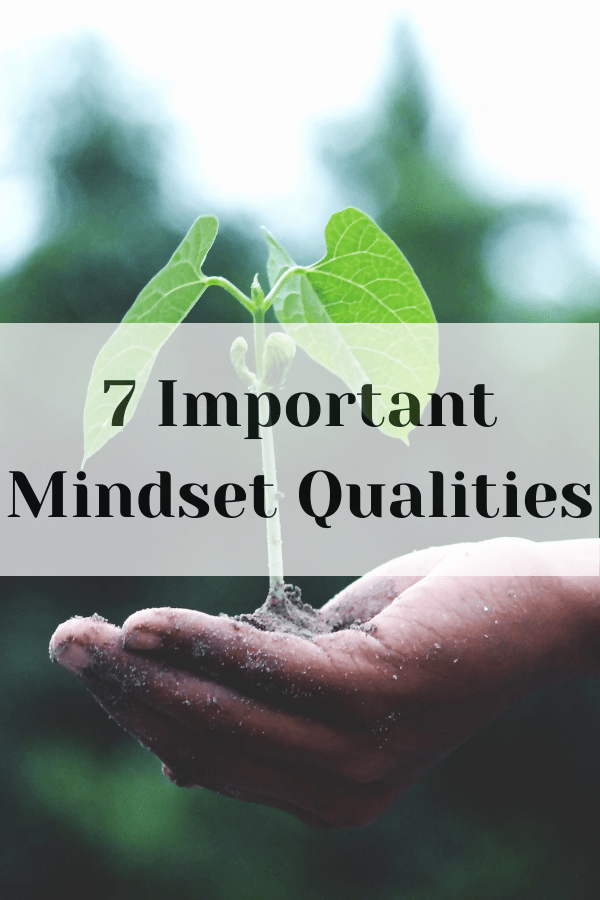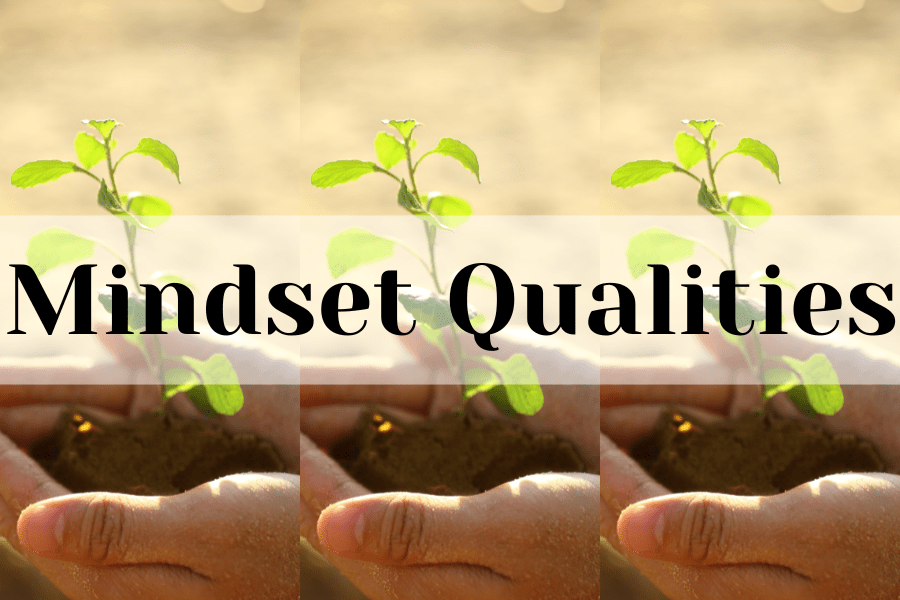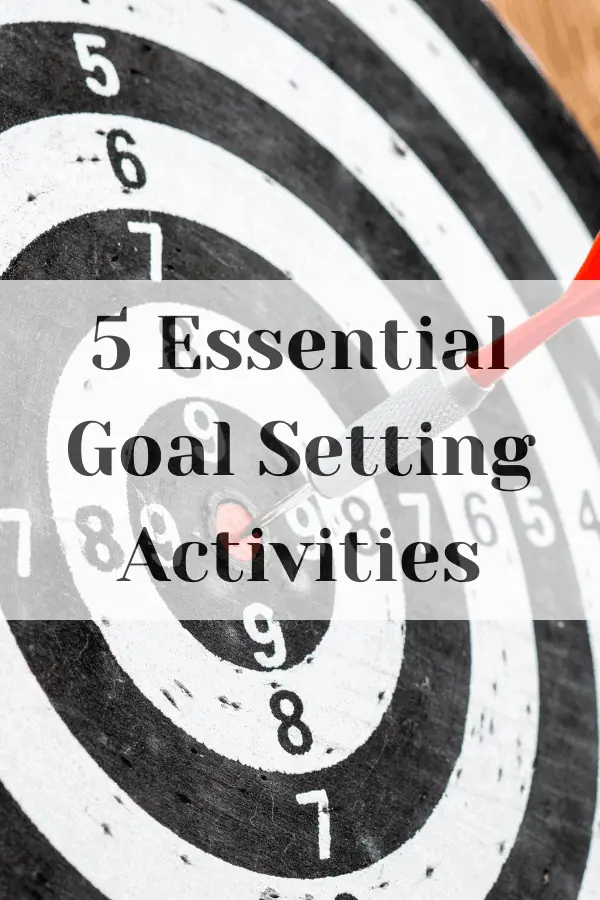Mindset Qualities

Your mindset and qualities will determine where you go in life! It is essential to work on your mindset qualities before anything else.
Understanding your mindset and where improvements can be made, can have a profound impact on your overall life.
This post is about mindset qualities
What is a mindset?
A mindset is a set of beliefs, attitudes, and assumptions that shape the way an individual perceives and approaches situations, challenges, and their own abilities. It can be seen as a mental framework that guides thoughts, feelings, and actions.
There are two main types of mindsets: a fixed mindset and a growth mindset.
- Fixed mindset: This is the belief that abilities and traits are set and cannot be changed. Individuals with a fixed mindset may be more likely to avoid challenges and give up in the face of setbacks, as they believe that success is determined by innate talent.
- Growth mindset: This is the belief that abilities and traits can be developed through effort and learning. Individuals with a growth mindset embrace challenges and see failures as opportunities for growth and development

Having a positive and growth-oriented mindset can help us overcome challenges and achieve our goals. It’s all about how we approach situations and view ourselves.
Ultimately, mindset qualities are important because they can help us cultivate resilience, overcome obstacles, and achieve success in all areas of our lives. By understanding and working on our mindset, we can become more self-aware, confident, and fulfilled.

Mindsets can be influenced by many factors, including past experiences, cultural background, and the attitudes and beliefs of those around us. It’s important to recognise that mindsets are not set in stone, and can be changed and developed over time with effort and self-reflection.
What are mindset qualities?
Mindset qualities refer to a set of traits or characteristics that influence the way an individual perceives and approaches situations, challenges, and their own abilities. Some common mindset qualities include:
- Growth mindset: The belief that abilities can be developed through effort and learning.
- Resilience: The ability to bounce back from setbacks and failures.
- Open-mindedness: The willingness to consider new ideas and perspectives.
- Positive attitude: A focus on the positive aspects of life and a tendency to see the best in others.
- Grit: Perseverance and determination in the face of challenges.
- Emotional intelligence: The ability to understand and manage one’s own emotions and those of others.
- Curiosity: A desire to learn and explore new ideas and experiences.

Resilience
Resilience is the ability to bounce back from setbacks and difficult situations. It’s an important mindset quality because it helps us stay motivated and persevere through challenges.
One way to build resilience is to reframe our perspective. Instead of seeing failure as a sign of personal inadequacy, we can view it as an opportunity to learn and grow.
It’s also important to take care of ourselves physically and emotionally. This can mean getting enough sleep, eating well, and engaging in activities that bring us joy and relaxation.
Another key factor in building resilience is having a support system. This can include friends, family, or even a therapist or coach. Talking through our problems with others and receiving encouragement and feedback can help us feel less alone and more motivated to keep going.
Ultimately, building resilience takes time and effort, but it’s an essential mindset quality for achieving success and happiness. By reframing our perspective, taking care of ourselves, and seeking support when we need it, we can develop the resilience we need to overcome obstacles and bounce back from setbacks.
Positive thinking
Positive thinking is the practice of focusing on the good in life, even in difficult or challenging situations. It’s an important mindset quality because it helps us cultivate resilience, optimism, and a sense of gratitude.
One way to practice positive thinking is to start each day with a positive affirmation or intention. This can help set a positive tone for the day and create a sense of motivation and purpose.
It’s also important to practice gratitude and focus on the good things in our lives. This can mean keeping a gratitude journal, taking time to appreciate the beauty in nature, or simply taking a moment to appreciate the people and things we have in our lives.
Another key aspect of positive thinking is the ability to reframe negative thoughts. Instead of dwelling on the negative, we can try to focus on solutions and opportunities for growth.
Finally, it’s important to surround ourselves with positive people and influences. This can mean seeking out supportive friends and mentors, listening to uplifting music or podcasts, or engaging in activities that bring us joy and positivity.
Overall, practising positive thinking takes effort and intention, but it can have a powerful impact on our well-being and success. By focusing on the good in life, cultivating gratitude, and seeking out positivity, we can develop a mindset that supports our growth and happiness.
Why mindset qualities are important
Mindset qualities are important because they can greatly impact an individual’s success, happiness, and well-being. Here are a few ways in which they can have a significant impact:
- Personal growth: A growth mindset, for example, can foster a love of learning and drive personal development, leading to greater success in both personal and professional life.
- Mental and emotional well-being: Resilience, emotional intelligence, and a positive attitude can help individuals cope with stress and challenges, leading to better mental and emotional health.
- Relationships: Open-mindedness and emotional intelligence can improve communication and help build strong, healthy relationships.
- Goal attainment: Grit and determination can help individuals persist in the face of challenges and ultimately achieve their goals.
- Adaptability: Curiosity and open-mindedness can help individuals navigate new and uncertain situations and remain flexible in the face of change.

Overall, mindset qualities play a crucial role in shaping an individual’s experiences and outcomes in life, and can greatly impact their overall well-being and success.
Growth mindset
A growth mindset is a belief that our abilities can be developed through hard work and dedication. It’s an important mindset quality because it helps us approach challenges with a positive and open attitude.
To develop a growth mindset, it’s important to focus on the process of learning, rather than just the outcome. This means embracing challenges, taking risks, and seeing mistakes as opportunities to learn and improve.
Another key aspect of a growth mindset is the willingness to seek out feedback and constructive criticism. Instead of feeling defensive or discouraged, we can view feedback as a valuable tool for growth and improvement.
It’s also important to cultivate a sense of curiosity and a love of learning. This can mean seeking out new experiences, trying new things, and staying open to different perspectives and ideas.
Developing a growth mindset takes effort, but leads to resilience, motivation, and success. By embracing challenges, seeking feedback, and staying curious, we cultivate a mindset that supports growth.
Mindfulness and self-awareness
These are important mindset qualities that help us stay present and in tune with our thoughts and emotions.
Mindfulness involves being fully present at the moment, without judgment or distraction. It can be practised through activities like meditation, deep breathing, or simply paying attention to our surroundings.
Self-awareness is the ability to understand our thoughts, emotions, and behaviours. It involves taking an honest and non-judgmental look at ourselves and recognising patterns or habits that may be holding us back.
To cultivate mindfulness and self-awareness, it can be helpful to practice regular self-reflection. This can mean journaling, setting aside time for introspection, or seeking feedback from others.
It’s also important to pay attention to our physical and emotional needs. This means taking breaks when we need them, getting enough sleep and exercise, and practising self-care activities that bring us joy and relaxation.
Finally, it can be helpful to seek out resources like therapy, coaching, or mindfulness classes to support our ongoing growth and development.
Developing mindfulness and self-awareness takes practice, but can lead to clarity, resilience, and well-being. By being present, understanding ourselves, and prioritising our needs, we develop a mindset that supports growth and success.
How to improve your mindset qualities
Improving mindset qualities requires a combination of self-awareness and intentional effort. Here are a few strategies that can help:
- Practice gratitude: Cultivate a positive outlook by focusing on what you’re thankful for in your life, rather than what’s going wrong.
- Embrace challenges: Instead of shying away from challenges, seek out opportunities to learn and grow, and view setbacks as opportunities for improvement.
- Cultivate a growth mindset: Belief in your ability to improve and develop your abilities through hard work and perseverance.
- Seek feedback: Ask for honest feedback from others and use it as a tool for personal growth.

- Surround yourself with positive influences: Surround yourself with individuals who support and encourage you, and try to limit exposure to negative influences.
- Practice self-reflection: Regularly reflect on your thoughts, emotions, and actions to gain insights into your mindset and identify areas for improvement.
- Engage in activities that promote personal growth: Engage in activities, such as reading, practising mindfulness, or taking courses, that promote personal growth and foster a growth mindset.
Remember that developing and improving mindset qualities takes time and consistent effort, but with dedication, it can lead to a greater sense of well-being and success.
This post is about mindset qualities
Share this post: on Twitter on Facebook



